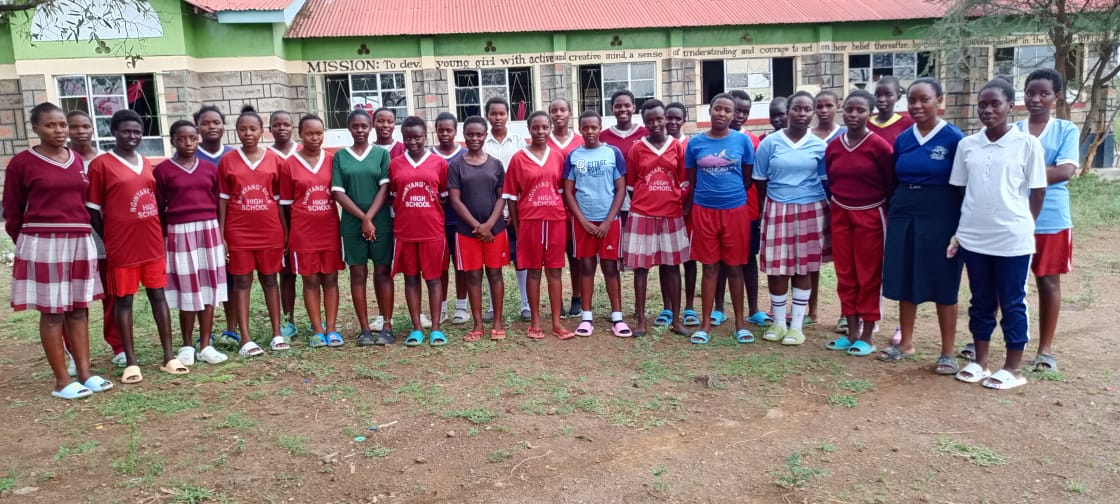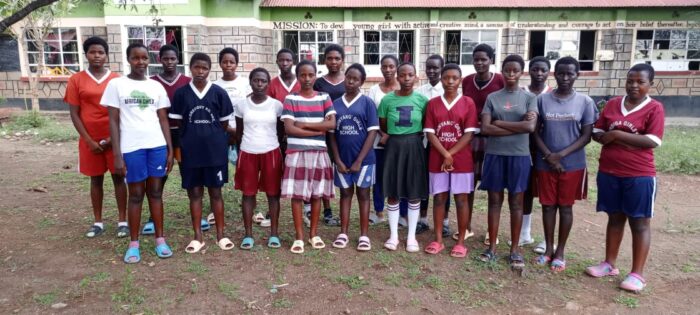So They Can: Nominee for the Change-Maker Award for a Not-For-Profit or Charity Organisation, 2024 Africa Award
By AAMEG | 2 September 2024

About the Nominee & their Nomination
In the heart of East Africa, where education can be a luxury and cultural norms often stand in the way of progress, So They Can is driving change that’s as inspiring as it is impactful. Since 2009, this Australian-founded international NGO has been on a mission to break the cycle of poverty through education, with a particular focus on keeping girls in school.
Operating in some of the most marginalised communities in Kenya and Tanzania, So They Can’s approach is nothing short of revolutionary. Their Keeping Girls in School (KGIS) project, active since 2019 in Tanzania and 2020 in Kenya, is tackling deeply rooted social norms that have long kept girls out of classrooms and trapped in cycles of poverty.
What sets So They Can apart is their commitment to local empowerment. Their teams in Africa are 100% national staff, trusted by communities and bringing lived experiences to their roles. This local knowledge ensures their programs are culturally and contextually appropriate, making a real difference on the ground.
The challenges are staggering. In Manyara, Tanzania, 58% of women aged 15-49 have undergone female genital cutting (FGC), 31-40% of women were married before 18, and 28.8% of 15-19-year-olds have been pregnant. In Baringo, Kenya, an estimated 50% of girls are at risk of FGC and child marriage. These practices aren’t just harmful; they’re robbing girls of their futures.

But So They Can’s innovative approach is changing the narrative. By engaging a network of 150 local parents as Champions of Change, they’re advocating for the replacement of harmful social norms with positive ones that promote gender equality and non-violence.
The result? A staggering 46% increase in girls’ enrolment across their partner schools, with Baringo, Kenya seeing a remarkable 76% increase.
The KGIS project is comprehensive, addressing multiple barriers to girls’ education:
- Delivering sexual and reproductive health education in schools
- Raising awareness about girls’ rights and the dangers of harmful cultural practices
- Supplying girls with washable sanitary products and menstrual hygiene education
- Ensuring schools have proper WASH (water, sanitation and hygiene) facilities
So They Can’s impact extends beyond just numbers. They’re changing mindsets and reshaping communities. In Baringo, they’ve supported the re-entry of 44 teenage mothers into formal education. At Nginyang Girls’ Secondary School, enrolment has increased by 350%, with 48 girls now aspiring to become engineers.
What truly distinguishes So They Can is their holistic approach. They don’t just focus on education; they address the multifaceted nature of poverty through their Community Development Program. This program improves health, wellbeing, and livelihoods of community members, ensuring that families can move from surviving to thriving, enabling them to send their children to school.
Their commitment to sustainability is evident in their 8-year development cycle with each partner school. They build local capabilities and knowledge until the community can independently sustain the progress, allowing So They Can to transition to new communities in need.
The organisation’s reach is impressive:
- Working with 51 government schools across Kenya and Tanzania
- Reaching 32,000 children and 750 teachers annually
- Supporting 15,000 community members through their Community Development Program
So They Can’s excellence is recognised at the highest levels. They are fully accredited by the Australian Government’s Department of Foreign Affairs and Trade (DFAT), a distinction given to less than 1% of Australia’s 60,000 charities. This accreditation acknowledges their ability to operate at the highest standard and effectively deliver sustainable development outcomes.
But perhaps most importantly, So They Can is planting seeds for global change. By educating girls, they’re not just transforming individual lives; they’re contributing to economic growth, addressing climate change, and creating a more equitable world.
As their passionate team points out, educating girls is ranked as the 6th most effective solution to reverse global warming, outranking even electric vehicles and solar panels.

In a world grappling with complex challenges, So They Can shows us that sometimes, the most powerful solutions start in the classroom. By keeping girls in school, they’re not just changing lives; they’re reshaping the future of entire communities and contributing to a more sustainable, equitable world for all of us.
Latest News
-
29 August 2025
PERSEUS MINING – Edikan Gold Mine, Ghana: Nominee for the Operational Excellence, 2025 Africa Award
-
28 August 2025
UMA (PERENTI GROUP) – Breast and Prostate Cancer Awareness: Nominee for the Excellence in Social Development, 2025 Africa Award
-
28 August 2025
SOUTH 32 – Reshaping Community Healthcare: Nominee for the Excellence in Social Development, 2025 Africa Award
-
28 August 2025
SANDFIRE RESOURCES – Survivor Economic Empowerment (SEE) Initiative: Women’s Garden Project: Nominee for the Excellence in Social Development, 2025 Africa Award
- More News

